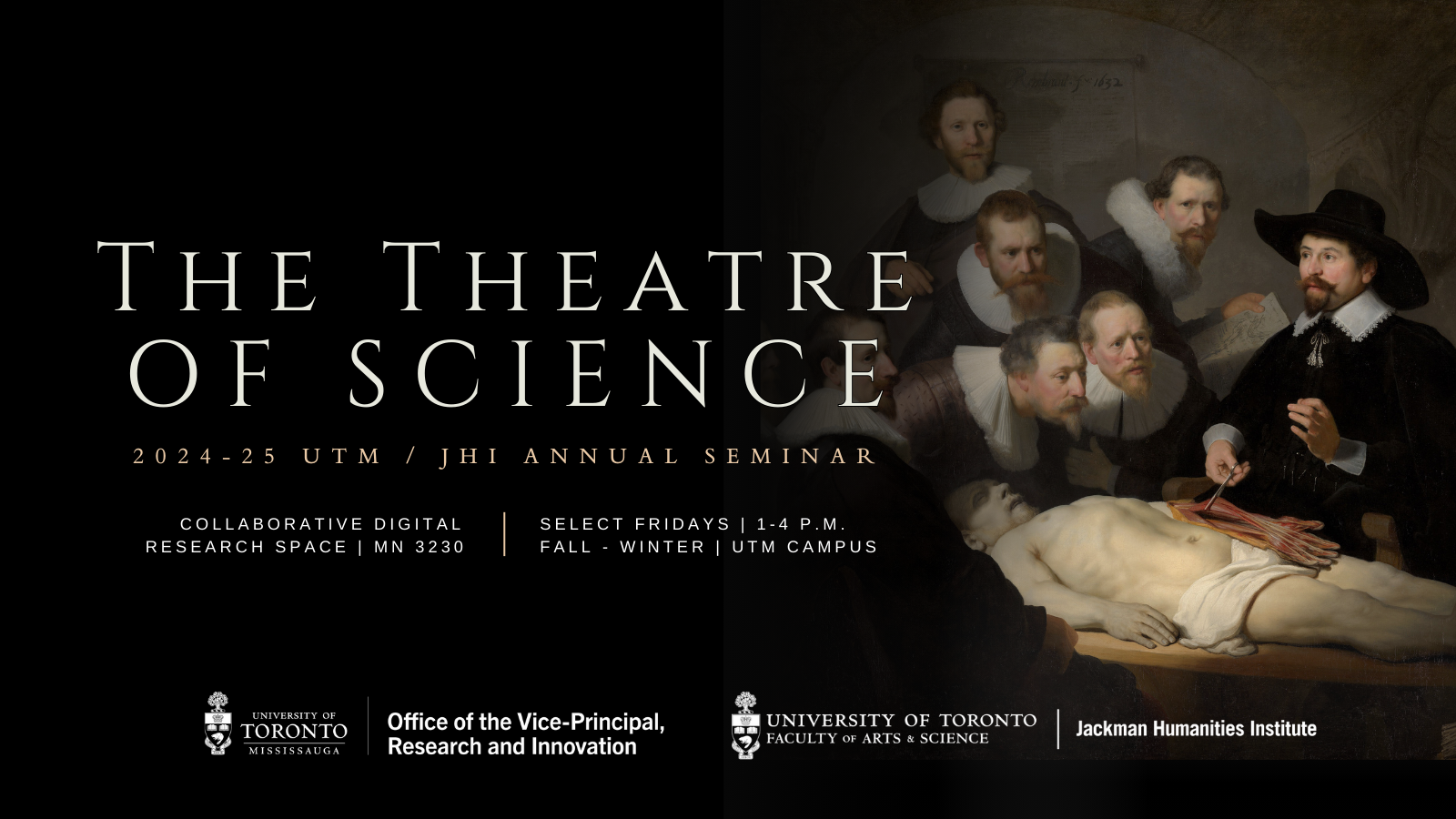2024-25 UTM-JHI Annual Seminar: Oppenheimer - Theatricalizing Physics and Physicists
When and Where
Description
Guests: Rebekah Pullen, Department of Political Science, McMaster University and Matthew Jordan, Department of History, Princeton University
The focus of this session will be the intriguing and controversial figure of Robert Oppenheimer, who has fascinated the public since 1945 and has re-gained global notoriety through John Adams’ opera Doctor Atomic (2005) and Christopher Nolan’s Oppenheimer movie (2023). In its currently planned format, an invited guest speaker from Physics will introduce the session with remarks on the scientific and political aspects of nuclear physics and the role of physics as a lead science in the 20th century. This will be supplemented by screenings from the opera and the movie, to be followed by interactive activities designed by the undergraduates in our core group.
Lunch will be available from 12:30 p.m. onwards
About the Series
The recent pandemic has made it abundantly clear that scientific insights must be communicated clearly and effectively so that the public understands and ‘buys in’ by changing its behavioural practices collectively. Persuasive social theatre and suggestive performance techniques are crucial parts of scientific communication strategies — the sciences need the theatre! This need for ‘self-theatricalization’ will only grow in the future, as most key sciences in the 21st century will be ‘embodied sciences.’
On the other hand, there is (and continues to be) a rich and important history of playwrights putting science and scientists on stage, thereby creating interfaces and highly visible public discourses at the intersection of society, religion, politics, knowledge creation, and ethics.
In this series, we’ll examine some of the manifold modes in which sciences and theatre-and-performance art continue to interact. We’ll explore key areas of contact between science/technology and theatre/performance; which sciences and scientists currently attract theatrical interest; where and how scientific knowledge begins and ends — and who needs to know it; and how theatre and performance can best contribute to such re-conceptualized ‘scientific knowledge.’



